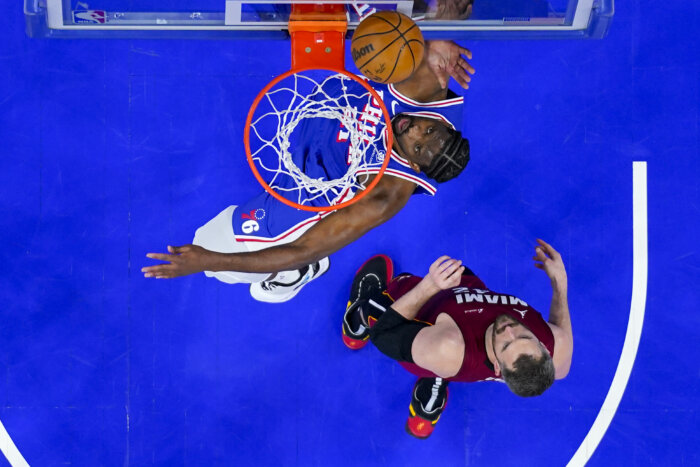Investment firm Aberdeen Asset Management gave employee Toby Wallace, 35, an unusual vacation parting gift — a rubber rescue ring. “I guess if anything happens, I’ll put this on and I’ll be safe,” he joked Friday as he met with Mayor Michael Nutter to receive a special citation from the city.
But his vacation is no ordinary trip to the beach — he’ll depart next Wednesday to row across the Atlantic Ocean, a 3,000 mile journey whose perils include storms, crashing waves and giant container ships. “This is definitely on a bucket list of adventures,” the London native-turned-Philadelphia resident said. “And it’s a chance to break a world record.”
The current fastest time is 31 days and 23 hours. Wallace, one of eight selected for the team, is aiming for 30 days. “We’d better be successful — we only brought 28 days’ worth of food,” he said.
Each member will survive on 6,500 calories per day while burning about 8,000, which is why Wallace packed 45 extra pounds onto his 6-foot-7 frame in the five months leading up to the journey. He expects to lose about 20 percent of his body weight.
A former Cambridge University rower, Wallace said that ocean rowing is a completely different animal. On a trip like this, seasickness, sleep deprivation and hallucinations are the norm. “River rowing requires skill and finesse,” he said. “Ocean rowing just requires a lot of mental strength and the ability to suffer doing days and days of the same thing.”
Wallace said that his biggest fear is not sharks, but the weather, because it might slow the team down. “With the river, it comes down to effort. With the ocean, there are so many other external factors that impact our speed — like the wind, which determines how choppy the water is — effort is less determinate of how fast we can go.”
Life on the sea
The boat, called the Titan, is the lightest, most technologically-advanced ocean rower ever built, with two carbon fiber boxes under the deck for sleep and a solar-powered desalination system to supply drinking water.
The team will travel from Gran Canaria off the coast of Africa to Barbados in the Caribbean, rowing in two- to four-hour shifts of four.
Onboard meals will consist of high-calorie dehydrated packets in flavors like bolognase, curry, shepherd’s pie and scrambled eggs.

The sun will also power a satellite phone and GPS tracker. Viewers will be able to trace the team’s journey on www.titanrow.com.




























